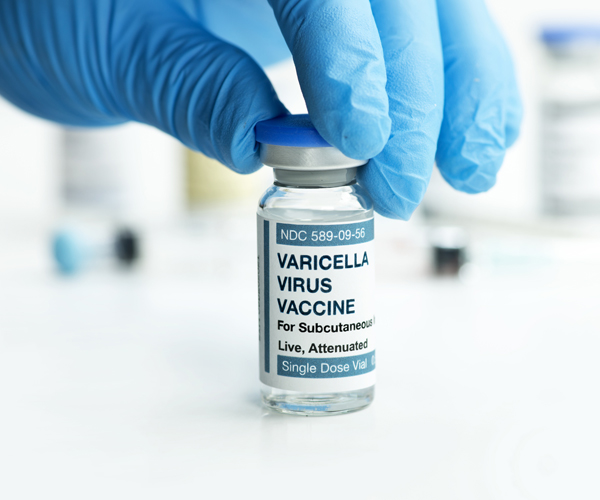Shingles vaccine may reduce risk of stroke
From Newsmax

Seniors who get the shingles vaccine may gain stroke protection as well, a new study suggests.
Shingles is a viral infection tied to heightened risk of stroke. But overall stroke risk dropped 20% among patients under age 80 who got the shingles vaccine. In patients 80 and older, risk was cut by about 10%, said researchers led by Quanhe Yang, a senior scientist at the U.S. Centers for Disease Control and Prevention.
“This is a win-win for vaccination,” said Dr. Gregg Fonarow, director of the Ahmanson-University of California, Los Angeles Cardiomyopathy Center.
“Less shingles, less stroke,” said Fonarow, who was not involved in the study.
The findings follow a review of Medicare records for more than 1 million patients over age 66. All received the shingles vaccine between 2008 and 2014. Stroke incidence was tracked for four years afterward.
Shingles is a painful bout of rashes and blisters caused by the chickenpox virus, according to the U.S. National Institute of Neurological Disorders and Stroke. If you’ve had chickenpox, you face a significant risk for eventually developing shingles.
Nearly all Americans 40 and up carry the dormant chickenpox virus, or varicella-zoster virus. That, said Fonarow, means that “almost one in three adults in the U.S. will develop shingles at some point in their lifetime.”
However, Yang and his colleagues noted that overall shingles risk drops by about half with vaccination.
Given that most shingles patients are at least 50, the CDC recommends all adults 50 and older get the shingles vaccine.
Yang’s team concluded that vaccination also reduced the risk for clot-induced (ischemic) stroke by about 18%, while cutting the risk for a bleeding (hemorrhagic) stroke by roughly 12%. Stroke protection was found to be particularly strong among patients between 66 and 79.
But why would a vaccine focused on reducing shingles risk also protect against stroke?
According to Fonarow, the answer may have to do with inflammation.
“Prior studies have shown that adults developing shingles have a greater risk of heart attack and greater risk of stroke,” Fonarow said. “This increased risk is greatest within the first 12 months of developing shingles, and decreases over time. The inflammatory response to shingles has been thought to account for this increase in heart attack and stroke.”
So it stands to reason that a vaccine that can prevent shingles from taking hold might also prevent a shingles-provoked stroke.
There are some caveats, however. For one, the vaccine used was Zoster Vaccine Live. Introduced in 2006 with the brand name Zostavax, it is no longer the vaccine of choice. A newer vaccine — the Adjuvanted, Non-Live Recombinant Shingles Vaccine (brand name Shingrix) — is more effective and is the CDC’s preferred choice.
But Yang’s study was completed before the 2017 introduction of Shingrix. So follow-up research will need to look into whether the new vaccine also appears to lower stroke risk.
The findings are scheduled for presentation Feb. 20 in Los Angeles at the American Stroke Association International Stroke Conference. Research presented at meetings is usually considered preliminary until published in a peer-reviewed medical journal.
© HealthDay
For more on this story go to; https://www.newsmax.com/health/health-news/shingles-vaccine-stroke/2020/02/13/id/953941/?ns_mail_uid=6952f1f9-507d-4a20-8cc0-0a1db158d76e&ns_mail_job=DM90766_02132020&s=acs&dkt_nbr=010502n7hvwl





